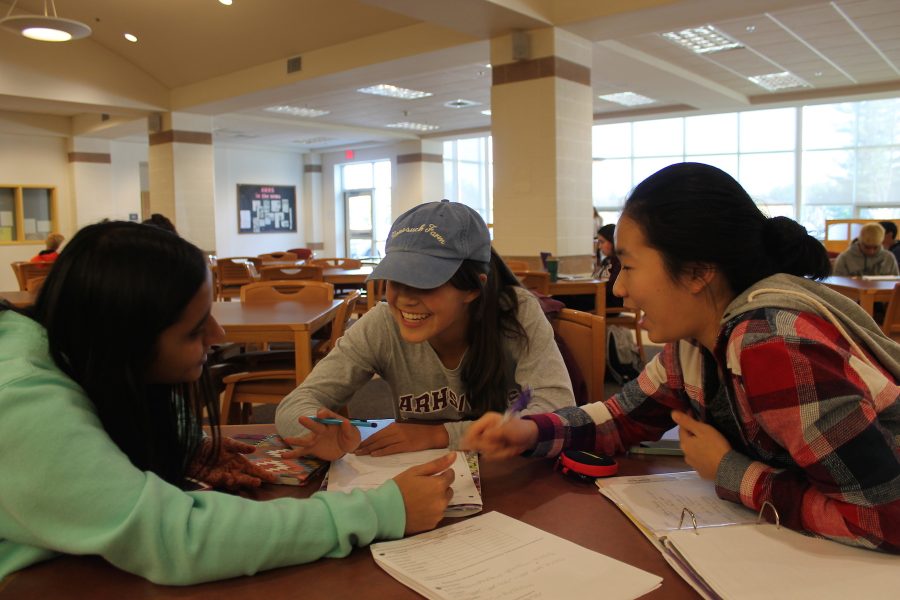Reading into the future of libraries
Digitalized technology is increasingly replacing borrowed books
Sophomores Eesha Verma, Annemarie Wood, and Nellie Zhang converse and collaborate in the library after school.
November 30, 2016
Borrowing books from the library seems to be a thing of the past for some students. With growing factors such as the digitization of books, as well as the indifference that some students seem to display towards them, many wonder what the future of libraries, specifically school libraries, will be.
School librarian Michelle Rehill thinks that both avid and hesitant readers have a place at the library, and that libraries aren’t leaving anytime soon.
“Some students are very heavy readers, and then there are students who will tell you when they’re graduating as seniors that they’ve never borrowed a book from the [school] library in their entire high school career,” Rehill said. “We try to have something [in the library] for everyone.”
Many students visit the library for studying, printing, or other academic purposes, and the resources available in the library help them.
“When I was younger, I only went to the school library when our class went and not on my own, but now I just go after school to do my homework,” freshman Jackie Nicoletti said.
Article continues below.
The library has a variety of different resources to help students with their work, which continue to get updated as technology changes over the years.
When Rehill first started working at the Algonquin library, there was no internet, which meant no access to databases online.
“The library provides access to a lot of databases and a lot of resources online, and I see teachers wanting their students to use these resources,” Rehill said.
It’s a change that is difficult for the general public to recognize, but the reported number of uses has increased.
As students’ reliance on technology increases, the library must adapt as well. In addition to five classrooms’ worth of Chromebooks, and many desktop computers, the library also may be able to bring e-readers to the table.
Other than this plan for new devices, the library does not plan to become extremely dependent on technology. This is partly because Rehill does not see much demand for devices such as e-readers among the students and teachers. Many students don’t see libraries evolving to be centered on reading.
“In the future, the library will most likely be about homework and studying, not about books,” freshman Nolan Shaw said.
Libraries, for Rehill, have changed immensely since her humble beginning as the library helper in high school.
“I see public libraries today, and school libraries as being where lots of programs are done,” Rehill said. “I think the library will become less a place of where somebody sits down and reads a book, and more of where people will engage with their books and stories. I think that’s changing, the use of the library.”
As the library continues to change in ways other than technology, it is still hard to tell where school libraries are headed.
“I think that school libraries will still be there, but they will resemble more of a computer lab than a library,” sophomore Yasmin Massoudi said. “But, I still think the books will be available, just used less. Who knows, maybe they will become completely different.”










